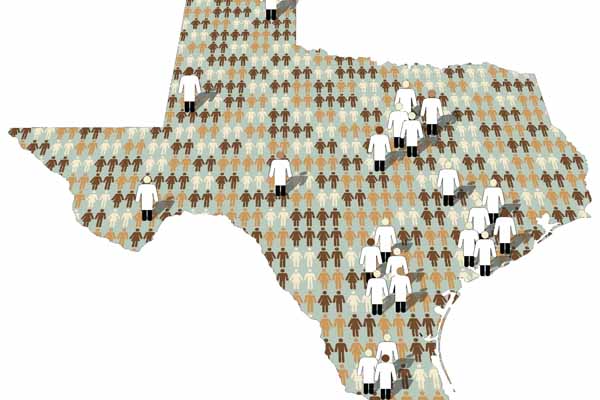
With a record-high budget at its disposal, the Texas Legislature seems poised to increase funding for graduate medical education (GME) in the 2024-25 biennium, fulfilling one of the Texas Medical Association’s legislative priorities. But physicians say more must be done to address the state’s physician workforce shortage, especially in primary care and in rural and underserved areas.
Preliminary budget bills in both the House and the Senate include funding to sustain GME residency positions created in recent years and to create new ones. This will protect the state’s substantial investment in medical education, help alleviate Texas’ physician workforce shortage, and defend against scope-of-practice expansion attempts. Corpus Christi pediatrician and TMA President Gary Floyd, MD, recently testified before the House Appropriations Subcommittee responsible for public education funding about the importance of such positions, especially given the state’s astronomical population growth in recent years.
“We know when a physician completes medical school, and especially when he or she completes postgraduate residency training in the state, 80% are likely to remain in practice in Texas,” he told lawmakers on Feb. 21.
Although Texas medical schools continue to grow in number and help train the next generation of physicians, a dearth of residency positions means some graduates must leave the state for training elsewhere – and this gap is only widening.
“With the opening of The University of Texas at Tyler School of Medicine this year, seven new Texas medical schools will have opened since 2016,” Dr. Floyd said. "We project almost 300 more first-year residency positions will be needed by 2027.”
In addition to GME funding, TMA is advocating for increased investment in physician pipeline programs and in the Texas Medical Board, both of which support a growing physician workforce.
Dr. Floyd mentioned four such programs during his testimony, including:
- The State Rural Training Track Grant, which the Legislature established in 2019 to encourage the create of new residency positions in nonmetropolitan areas, but never funded;
- The Physician Education Loan Repayment Program, which incentivizes primary care physicians and psychiatrists to practice in rural and underserved areas by paying off their student loans;
- The Family Practice Residency Program, which provides grants to the state’s nationally accredited family medicine residency programs in an effort to increase the number of physicians who choose that specialty; and
- The Joint Admission Medical Program, which encourages economically disadvantaged students to pursue careers in medical by offering scholarships, paid internship opportunities, mentorship, and other support.
In testimony before the Senate Finance Committee and a House Appropriations subcommittee, Dallas anesthesiologist Zachary Jones, MD, and Temple internist Jimmy Widmer, MD, urged lawmakers to increase funding for the Texas Medical Board (TMB), including by ensuring a greater proportion of its licensing fees stays in-house, as is the norm in other states.
Currently the board keeps only 40% of its revenues – not enough to keep up with processing record numbers of licenses and renewals. TMA supports TMB's request to retain 60% of its revenues.
“Having a well-run, efficient, and adequately staffed and resourced Texas Medical Board is essential for meeting our state’s physician recruitment and retention needs,” Drs. Jones and Widmer testified.
Emma Freer
Associate Editor
(512) 370-1383